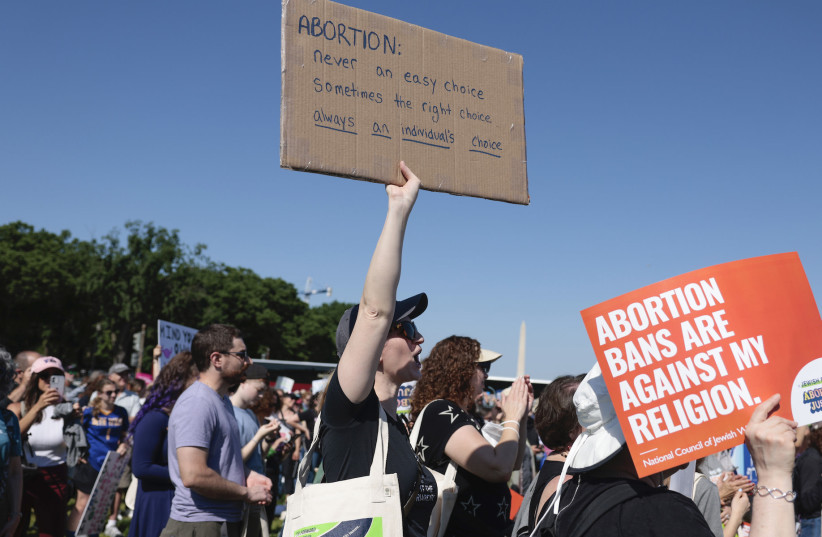The recent focus on abortion rights and the US Supreme Court’s seeming intention to overturn Roe vs Wade has highlighted a sharp contrast in the way different religions view abortion.
As with most issues, Jewish views on abortion differ from denomination to denomination, although all agree that if a woman’s life is in danger due to her pregnancy, she can, or even must, undergo an abortion. This is due to the Jewish principle of “pikuah nefesh” – Jewish law states that if a human life is in danger, all laws can be broken in order to save it. Although the three main denominations – Orthodox, Conservative, and Reform – hold vastly different opinions on abortion, all agree that it is permitted if it will save the life of the mother.
Abortion in Orthodox Judaism
Orthodox Judaism holds the strictest view on abortion and is the only denomination to not conclusively believe that a fetus is not a human life. Therefore, while some Orthodox rabbis will allow abortion when a mother’s health is in danger, even if her life is not, among other reasons, others will take a stricter approach. Nevertheless, all Orthodox leaders agree that the mother’s life must be saved over the fetus if it comes down to that.
Abortion in Conservative Judaism

The Conservative movement is more lenient, explicitly stating that if a woman’s mental health is impacted negatively by pregnancy, this counts as a risk to her life and she is permitted to undergo an abortion. The 1983 Conservative Judaism rabbinical ruling on the subject states that “if a continuation of pregnancy might cause the mother severe physical or psychological harm, or when the fetus is judged by competent medical opinion as severely defective.”
Abortion in Reform Judaism
The Reform movement interprets the principle of pikuah nefesh more widely still, including pregnancy as a result of incest or rape under the reasons one can undergo an abortion, as well as if a fetus is determined to have severe developmental defects.
Jewish pro-choice movements
Jewish pro-choice organizations in the US are hoping their religious beliefs regarding abortion will serve as a way to fight against the overturning of Roe vs Wade, as it can be argued that it infringes on their religious freedoms.
In an essay titled “The Torah of Reproductive Freedom” published in March of this year, American Conservative rabbi and educator Rabbi Danya Ruttenberg states that “when we think about abortion laws that enshrine a specific Christian... concept – granting ‘fetal personhood’ or asserting that life begins at conception – we begin, from here, to see how they are not only an infringement on the 14th Amendment (privacy) but that of the First Amendment.
“It tramples on a Jewish (and Muslim) understanding of when life begins – to say nothing of the impacts for atheists, agnostics, and non-Christians of many different backgrounds, and Christians who regard things in other ways.”
“It tramples on a Jewish (and Muslim) understanding of when life begins – to say nothing of the impacts for atheists, agnostics, and non-Christians of many different backgrounds, and Christians who regard things in other ways.”
Rabbi Danya Ruttenberg
Bringing forward sources from various Jewish texts written over the centuries, Ruttenberg pieces together a picture of Jewish views on abortion, highlighting the religious freedoms that would be infringed upon, should Roe vs Wade be overturned.
One source often used by Jewish pro-choice advocates comes from the Talmud, Sanhedrin 92b, where it speaks of a “moment of determination” and a “moment of creation” in regard to different stages of the fetus. This, to pro-choice Jews, is an indicator that Judaism does not believe that life begins at conception – a belief held by many Christian denominations.
While it is too early to know for sure how the fight for abortion rights will proceed in the US over the next few months and years, it’s clear that Jewish pro-choice movements will not let their religious freedoms be taken from them without putting up a fight. But how this will impact the wider debate remains to be seen.
